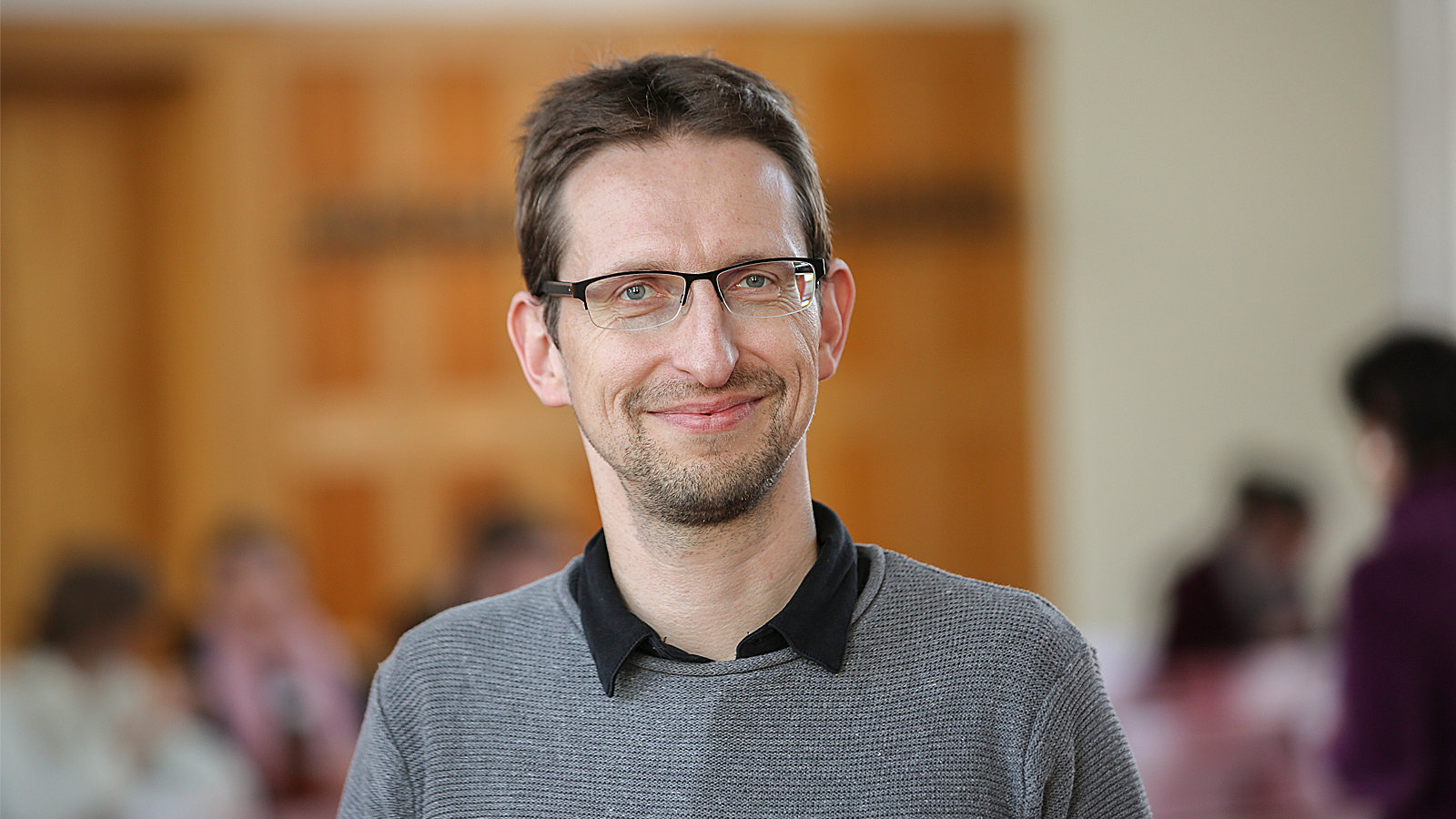“Those Who Feel Safe Are Less Likely to Protest Against Migration”
The Professorship for Social Psychology at Chemnitz University of Technology has published the results of a survey of Chemnitz citizens regarding the events of summer 2018 – Age range: 51 to 70 years
-

Professor Frank Asbrock has been researching the events of the August 2018 in Chemnitz and how they have affected the mood of the citizens of Chemnitz. Photo: Jacob Müller / Chemnitz University of Technology
Due to a homicide that took place during a dispute on 26 August 2018, right-wing populist and extremist groups descended upon Chemnitz and marched through the streets towards the end of summer 2018. As a result, the city received much attention from the media. Sometimes up to several thousand people from both Chemnitz and Germany as a whole participated in these so-called “funeral marches”, as they were called by their initiators.
In order to shed light on the perceptions of these events from the point of view of actual citizens of Chemnitz, and to attempt to find explanations for the events, a team from the Professorship of Social Psychology at Chemnitz University of Technology conducted a survey of 500 citizens, on behalf of a city initiative. The survey interviewed men and women over the age of 18 who do not have a migration background. The average age of the respondents, who come from all parts of Chemnitz, was 61.5 years, and thus was about 8 years above the average age of adults in Chemnitz. The majority of the respondents were between the ages of 51 and 70. Due to the method of data collection (landline telephone interview), younger people could not be included in the survey.
The information gathered shed light on the views of participants regarding the protests against migration and refugee policy, counter-protests, their perception of security and threats, contact with persons who have a migrant background, and other political and social attitudes. The interviews were computer-assisted and via landline telephone.
On 27 August 2019, after all data was evaluated, the study was published, under the name “The Situation in Chemnitz – The Mood after August 2018”. “Forty percent of respondents said they had, either often or very often, positive contact with migrants – while fewer than seven percent of respondents reported that they have had negative experiences either often or very often,” says Professor Dr. Frank Asbrock from the Professorship of Social Psychology, who heads the study. Nonetheless, about half of the participants (49 percent) stated that people from other countries were perceived as a threat to security. “This perception that migrants pose a threat goes hand in hand with a willingness to participate in the protests against the migration and refugee policies, such as the ones that took place in Chemnitz in late summer 2018,” said Asbrock. On the other hand, research also showed that positive experiences and contact, as well as a greater sense of personal security, were tied to a lower willingness to participate in these types of protests. The study also revealed a significantly higher willingness to protest xenophobia (about 38 percent) than migration policies (about 18 percent). It was also revealed that just under half of the respondents considered themselves likely to participate in any way at all.
In summary, Asbrock says that “the results show the importance of a sense of security and the perception of threat. If right-wing groups succeed in fostering fears and perceptions of threats, they can find success, as was shown here in Chemnitz, and mobilise people for their cause.” The characterisation of the protests against migration and refugee policy as “funeral marches” also cannot be supported, based on the data. “A sense of grief over the homicide at the end of August is not significantly related to the willingness to protest migration and refugee policy,” said Asbrock.
Overall, the three most important factors in assessing the events of August and September 2018 are a perception of threat, a sense of security and experiencing contact with people who have a migration background. The social psychologists from Chemnitz see starting points for the eventual improvement between these different groups, both in Chemnitz and beyond. “We see the results of our study as affirming the concrete efforts that have been made locally to create opportunities for positive contact between people both with and without a migration background. In line with further research, we can safely say that we can reduce the perception that these people are a threat, and thus strengthen solidarity,” said Asbrock, while adding: “Those who feel safe are less likely to protest against migration.”
The research project was supported by the Federal Ministry for Family Affairs, Senior Citizens, Women and Youth (BMFSFJ), as a part of the “Demokratie leben!” federal programme, with about 28,000 euros in funding. The project was also supported by the city of Chemnitz.
The study “The Situation in Chemnitz – The Mood After August 2018” can be found on the web at https://www.tu-chemnitz.de/hsw/psychologie/professuren/sozpsy/demokratieleben.php (german).
Multimedia: In the TUCpersönlich podcast, Professor Dr. Frank Asbrock discusses prejudice research, why he studied psychology and his personal views of the city of Chemnitz.
For more information, please contact Professor Dr. Frank Asbrock, Phone: 0371 531-31678, Email: frank.asbrock@psychologie.tu-chemnitz.de.
(Article: Matthias Fejes / (Translation: Jeffrey Karnitz)
Matthias Fejes
28.08.2019




